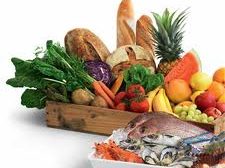By: REBECCA BOWYER
I’m calling it. I am absolutely tired of being told what to feed my children.
Sugar is poison. Fresh fruit and vegetables are essential. But not too much fruit or they’ll get hooked on the sweetness. Plenty of protein but not too much red meat as it causes cancer. And limit the fish because the ocean stock is vanishing. Chickens are okay as long as they’re free range and organic. Children should eat a wide variety of foods early or they’ll never like caviar or smoked salmon in later life. Introduce vegetables before fruit. Baby-led weaning is recommended but be careful they don’t choke. Any processed food is bad and everything should be homemade but you have to actually go to work during the day so you’ll need to spend your evenings grating zucchinis and hiding eggplant and mushrooms in sausage rolls with homemade sauce because the store-bought stuff is full of sugar.
Only to have the kids throw all your hard work back in your face with a decisive, non negotiable YUCK!!
And now it’s salt.
According to a study released by the Centre for Physical Activity and Research at Deakin University in Melbourne, more than half of the toddlers studied were eating too much salt due to consumption of everyday foods such as bread, cheese, breakfast cereal, soup (Really? Are there kids out there who eat soup?), processed meat and yeast extract spreads.
Yes, Mums and Dads, you are putting your offspring at risk of high blood pressure, stroke and coronary heart disease by feeding them humble cheese sandwiches. You irresponsible villains, you.
I saw this study reported by a couple of media outlets, felt outraged and chose to ignore it.
Then I saw sense, sought out the actual media release and had a look.
Lo and behold, the researchers weren’t actually blaming parents.
“Parents naturally want to do their best by children, however because salt is added to many of our basic daily foods, they are unintentionally feeding them diets too high in salt,” said Associate Professor Karen Campbell.
She goes on to say the fact that “The lion’s share of the salt comes ‘hidden’ in everyday family foods, highlight[s] the essential role governments and the food industry must play to reduce salt across the board.” [emphasis added].
The UK has managed to cut down on salt in manufactured food through new regulations. It can be done. So why aren’t we doing it here?
Quite frankly, I think it’s high time a little corporate responsibility is taken for feeding our kids.
I am not planning to bake my own low-salt bread every day. I don’t intend to buy my own cow so I can churn my own low-salt cheese (or is it just butter that’s churned?).
I will continue to try and feed my kids a balanced diet in the best way I know how without sending me broke (organic whole foods, I’m looking at you) or causing me a heart attack from the stress of trying to stuff kale down my toddler’s protesting throat.
With any luck my kids will at least be well preserved thanks to their excessive consumption of salt.
Until the manufacturers get themselves sorted out, here are some useful tips from the research team at Deakin on lowering the daily salt intake of your little ones:
- Swap high salt breakfast cereals for low salt cereal that has less than 300mg of sodium/100g (refer to the nutrition information panel on the product).
- Swap high salt breads for lower salt bread that has less than 400mg of sodium/100g (refer to the nutrition information panel on the product).
- Swap processed cheese slices for cheddar cheese.
- Swap processed meats like sausages or ham/chicken slices for fresh meats like grilled or roasted meats/ chicken/fish.
- Swap high salt yeast and cheese spreads on breads and biscuits for low salt toppings like no added salt peanut butter, tomato, avocado, or cooked lean meats/chicken/fish.
- Swap high salt bread or biscuit based snacks for snacks of fresh fruits and vegetables which are naturally low in salt.
Rant over and out.
 Rebecca Bowyer is a regular blogger with Mornington Peninsula Kids. You can read more of her blogs at Seeing the Lighter Side of Parenting and follow her on Facebook or Twitter
Rebecca Bowyer is a regular blogger with Mornington Peninsula Kids. You can read more of her blogs at Seeing the Lighter Side of Parenting and follow her on Facebook or Twitter


